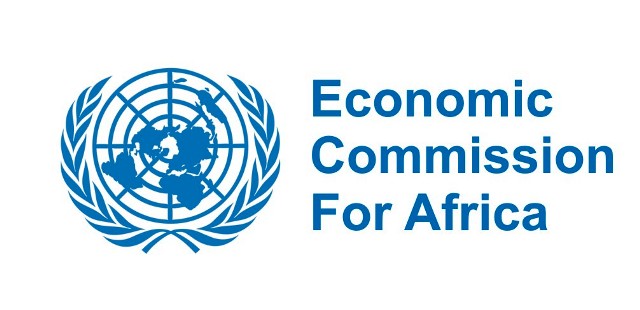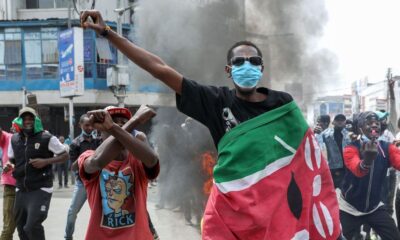Business
Association Charges FG On Leather Industry
The Leather and Allied
Products Manufacturers Association of Nigeria (LAPMAN) last Wednesday urged the Federal Government to develop the indigenous leather industry to reduce importation of finished products.
The Chairman, Board of Trustees of LAPMAN, Alhaji Bashir Danyaro, made the call in an interview with our correspondent on the sideline of the two-day Leather Industry Revival Conference which ended in Abuja.
Danyaro said that a lot would be achieved if the industry was fully developed and that more revenue would be generated from the exportation of finished leather products.
“The last (leather foreign exchange) figure we had in year 2009 was $680 million but in 2011, it went up to $3 billion, according to Central Bank’s figures.
“In the nearest future, it is to see the Nigerian leather industry being grown to the level that Brazil has gone.
“Brazil now is exporting leather to 80 different countries, finished leather and finished goods.
“We are only exporting semi-finished and very little finished leather.
“But now we want a situation where our leather when we finish in Nigeria, should be produced into goods that we can export abroad.
“Then we are now adding value and creating more jobs and getting more money out of our products than sending our raw material from our country to finish them and return them to our country.“
The chairman listed the major challenges confronting the sector as: inadequate infrastructure, the need for manpower development and adaptation of new technologies as well as policy gaps.
“There are policies that government must make sure it creates so that it can help the industry grow; one of them is the local content.
“Government should encourage buy-in to save jobs so that Nigerians will be encouraged to buy Nigerian goods, thereby creating job for Nigerians.’’
According to Danyaro, the country used to have about 40 tanneries but the number has dropped to 10.
He, therefore, urged the government to ensure the revival of the industry to boost production, create jobs as well as gain the confidence of the people to wear their finished products.
“If the government has been able to take care of the industry the way it should, we would definitely have seen a change especially in the Northern part of the country where we have youths doing nothing.
“The leather industry is big enough to take all of them and give them gainful employment.
“It is a labour intensive area; all the leather chains require people and a lot of people.
“Any factory that is either making leather or producing shoes or bags uses a lot of labour.
Business
Over $1.5bn Spent To Protect Nigeria’s Oil Installations -FG

The Federal Government has said it has spent over $1.5 billion from 2020 to date to protect the nation’s oil installations and curb crude oil theft.
The Secretary to the Government of the Federation (SGF), George Akume, made this known, yesterday, at a public hearing of the House of Representatives on crude oil theft.
Akume was represented by the Permanent Secretary, General Services, Maurice Nandi.
The Federal Government was concerned about the report from the Nigerian Extractive Industries Transparency Initiative (NEITI), which pointed to over $46 billion worth of stolen crude between 2009 and 2020.
“The House had set up a special committee, headed by the Chairman of the House Committee on Petroleum Upstream, Ado Doguwa, to investigate the losses in the oil and gas sector,” Akume said.
Additionally, Speaker of the House Tajudeen Abbas, represented by Deputy Speaker Benjamin Kalu, said $10 billion has been lost in seven months to crude oil theft.
Business
FG Unveils Metering Project Teams To Combat Oil Theft

The Nigerian Upstream Petroleum Regulatory Commission (NUPRC) has inaugurated Metering Audit and Advance Cargo Declaration project teams, to promote transparency and accountability in the upstream oil and gas.
The Commission’s Chief Executive, Mr Gbenga Komolafe, who spoke at the inauguration of the project teams, on Wednesday in Abuja, said the projects were designed to combat crude oil theft and boost revenue.
It will be recalled that the Federal Executive Council (FEC) had approved a 21 million dollars contract to audit metering and measurement equipment in the 187 oil flow stations in the country and also put in place an advance cargo declaration solution.
These initiatives as earlier announced by Minister of State for Petroleum Resources Sen. Heineken Lokpobiri, aims at enhancing monitoring and accountability in crude oil production and distribution, addressing rampant oil theft.
Komolafe, while inaugurating the project monitoring teams, announced a four-month deadline for the completion of the projects.
According to him, the initiatives zre in line with NUPRC’s mandate to ensure optimal government revenues from upstream petroleum operations, as specified in the Petroleum Industry Act (PIA) 2021.
He said the projects would be executed by PE Energy Limited and P-Lyne Energy.
“Audit of Upstream Measurement Equipment and Facilities project aims to establish reliable baseline data for all measurement points, identify gaps in production and allocation measurement, and implement targeted interventions to enhance metering infrastructure.
“This project is crucial in addressing issues such as the presence of obsolete equipment, lack of a comprehensive database and absence of real-time production measurement across many locations.
“Advance Cargo Declaration Solution complements the metering audit by establishing a robust system for declaring and tracking crude oil transportation and exports from Nigeria,” he said.
He said the project would monitor and account for the movement of crude oil within the country, prevent disruptions, theft, and under-declaration, and ensure that only certified products were being exported.
“It will also enable real-time tracking, reconciliation, and reporting of crude oil exports to facilitate accurate revenue billing and generation.
“For a long time as a nation we have suffered from the menace of crude oil theft and there have been contentions on the accuracy in terms of our hydrocarbon accounting in Nigeria in a manner that has impacted our federal revenue unfavourably.
“So what has happened is that the commission, within its assumption of office, has been able, as a regulator, to take a very bold measure to address this issue.
“We have 31 crude oil loading terminals. So we are trying to ensure that we put in place a framework where the nation will be able to accurately determine and measure the volume of crude that is loaded from these terminals,” he said.
He tasked the teams, comprising experts from various NUPRC’s departments, to discharge their duties professionally, adding that the projects would be delivered within four months, while any request for timeline extension would not be entertained.
The NURPC boss said that each project had a dedicated team, led by Mr Enorense Amadasu, Executive Commissioner for Development and Production, NURPC, with strict timelines for completion.
While commending President Bola Tinubu for his support, Komolafe urged stakeholders to cooperate with the teams to facilitate successful implementation of the projects.
“Team for Audit of Upstream Measurement Equipment and Facilities in the Nigerian Oil and Gas Industry” project comprise ; Manuel Ibituroko – Deputy Director, Facilities Engineering & Optimisation; Mohammed Sirajo – Manager, Facilities Engineering; Ike Chidi – Manager, Facilities Engineering; and Bashir Shariff – Principal Regulatory Officer.
“Team for Advance Cargo Declaration Solution” project, comprise: Bello Shehu – Assistant Director, Crude Oil & Gas terminal Operations; Abdulrahman Idris – Manager, Petroleum Accounting; Omeje Desmond – Deputy Manager, COTO PHC; Dimkpa I. H. – PRO, COTO Warri and Olatunji Babatunde – NDR”.
He said the teams would liaise with the contractors to ensure the fulfilment of the Commission’s specified obligations and monitoring the implementation of the projects to ensure alignment with the scope and specifications.
Responding, one of the two contractors, Chief Executive Officer, PE Energy Ltd, Daere Akobo, thanked the Federal Government for the confidence repose in them to take a pragmatic look at hydrocarbon accounting.
Also, the Director, P-Lyne Energy, Tomi Ogunwole assured that the company would abide by the four-month deadline set by the commission.
Business
FG Launches Blueprint For Africa’s Digital Trade
The Federal Government of Nigeria has launched a comprehensive strategy to spearhead Africa’s digital trade revolution, aligning with the African Continental Free Trade Agreement (AfCFTA) framework.
The initiative, a key component of President Bola Tinubu’s Renewed Hope Agenda, is aimed at leveraging trade as a driver of economic growth and continental unity in accordance with AfCFTA’s objectives.
According to Vice President Kashim Shettima, in his X handle (formerly twitter), “Nigeria is in a unique position to spearhead the continent’s technological transformation”.
He said the strategy includes implementing AfCFTA’s Digital Trade Protocol, developing technical talent hubs, enhancing digital infrastructure investments, and promoting innovation and entrepreneurship.
Shettima stated this while delivering a keynote address during a stakeholders’ summit with the theme, “Digital Trade in Africa: The Renewed Hope Strategy”, at the Presidential Villa, Abuja.
The Vice President emphasised the need for public-private sector synergy and assured continued government investment in digital infrastructure and human capital development.
On his part, the Minister of Communications, Innovation, and Digital Economy, Bosun Tijjani, highlighted the Tinubu administration’s substantial investments in all aspects of the digital trade protocol, aiming at harnessing opportunities both in Nigeria and across the continent.
He stated that innovative policies and programmes, such as the Three Million Technical Talent programme, the data protection policy, and increased investments in digital infrastructure, were equipping Nigeria’s young population for current and future opportunities.
Tijjani stressed the critical role of technology in facilitating trade across Africa, noting that the unprecedented opportunities within the single market area could be best leveraged through effective collaboration and networking enabled by digital technology.
-
Business3 days ago
Town Planners Lament Shortage Of Professionals
-
Niger Delta3 days ago
Edo Guber Poll: Ganduje Inaugurates Campaign Council …Vows To Reclaim State For APC
-

 Business1 day ago
Business1 day agoOver $1.5bn Spent To Protect Nigeria’s Oil Installations -FG
-
Niger Delta24 hours ago
Gunmen Rob, Kill Businessman In Bayelsa
-
News3 days ago
We’ll Respond To Planned Protest Professionally, IGP Assures
-
Sports3 days ago
CEAPOLY To Include Sports In Curriculum – Rector
-

 News1 day ago
News1 day agoECA Advises African Countries On Rising Indebtedness
-

 Editorial23 hours ago
Editorial23 hours agoLearning From Kenya’s Protests

